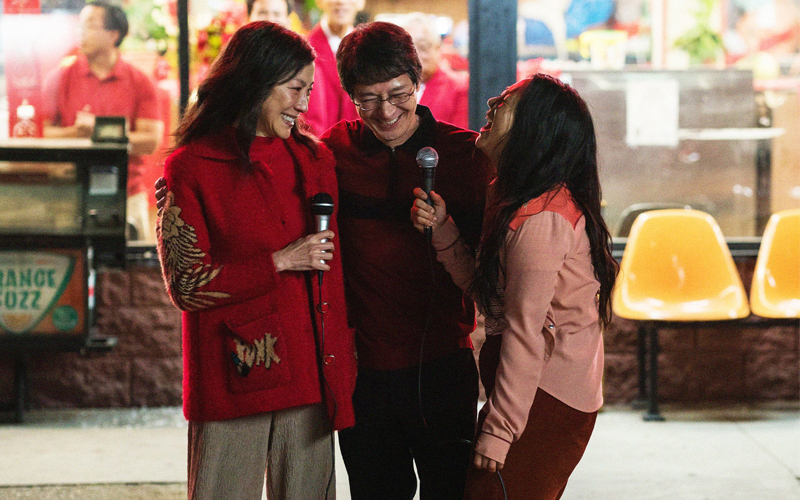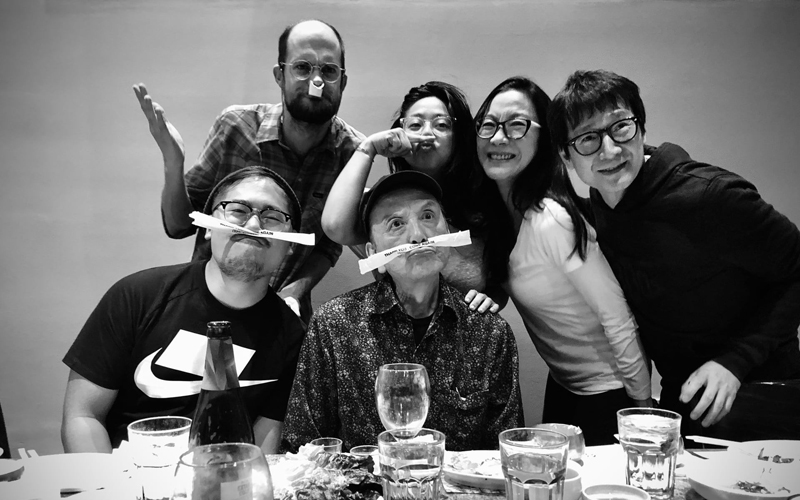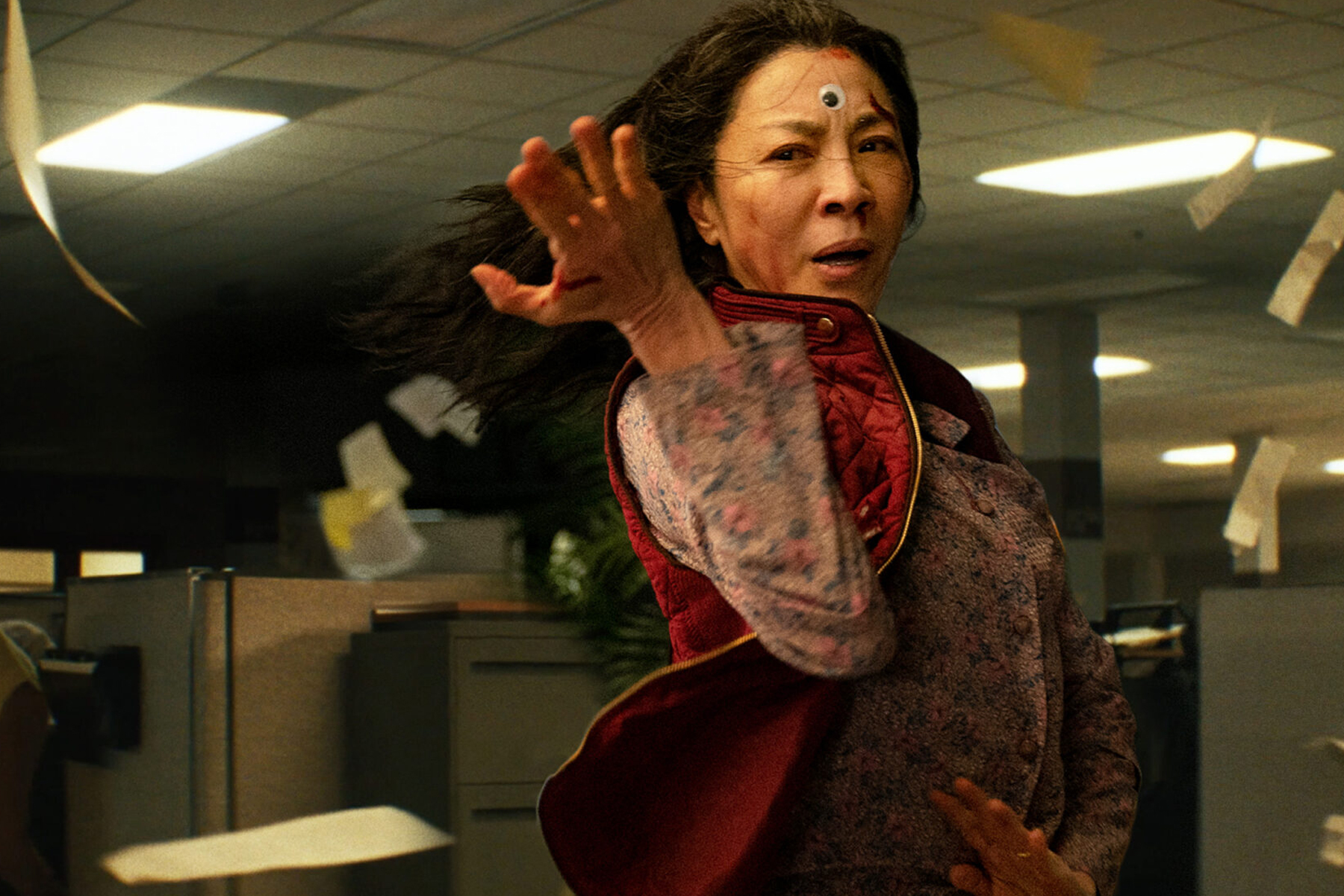If you really think about most of the blockbuster films you’ve seen, you’d notice that quite a few of them end in a bombastic fight or a shoot-out. This isn’t inherently a bad thing. It’s a lot of fun to watch a bunch of angry people duke it out and while finding peaceful resolutions to real-life conflict is simply good practice, it’s not necessarily what we look for on the big screen.
However, that isn’t the case with Everything, Everywhere, All At Once. This magnificently weird yet touching film imparts a novel lesson in its epic and somewhat overdrawn climax. Instead of going the usual route of saving the day by fighting it out, the film opts for a more quiet and conversational ending.
The film centres around Evelyn Wang, a Chinese–American woman, who is roped into complex multiversal shenanigans and must do everything she can to stop the end of everything. Major spoilers for the film below!

Embracing Change
The film’s most refreshing moments stem from its flawed characters, who constantly make mistakes and stumble before picking themselves up. The film is centred on Evelyn Wang, who is not the most perfect person in the world by a long shot. Her home is falling apart, with her husband, Waymond, on the verge of divorcing her, and her daughter struggling to have herself and her girlfriend be accepted into the family.
When Waymond is possessed by a variant version of himself from the Alpha universe, he explains the multiverse’s complex nature and tries to convince her of its reality. Of course, Evelyn refuses to accept this, preferring instead to return to her mundane life. We might scratch our heads at that bit, wondering why anyone would refuse to accept greatness lying beyond themselves. But would you really embrace change in Evelyn’s shoes? Your life might feel mundane, but there is comfort in mundanity. It feels scary to enter a whole new world of possibilities beyond your understanding, but a revelation makes Evelyn rethink that line of thought.
When Jobu Tupaki, the villain who seeks to bring an end to the multiverse, is revealed to be a variant of Evelyn’s daughter, she is faced with a choice. Kill or be killed. A choice that ends with her refusing to kill her daughter by embracing the possibilities of the multiverse, tapping into different versions of herself and gaining their skills to fend off incoming assaults. Although the strain of tapping into different versions of herself could well end up killing her, she does it anyway to face her daughter.

Being empathetic
One of this movie’s strengths is that it doesn’t just focus on Evelyn’s struggles, but also on her counterparts throughout the multiverse. Although they’re more skilled than our Evelyn, they have their own struggles ranging from controlling fathers to abandoned dreams. They go through their own personal arcs alongside Evelyn, where they learn to be more empathetic and more accepting of their flaws.
A laugh-out-loud moment revolves around a version of Evelyn who happens to be a skilled chef competing with a younger, more impressive chef. Much like the Pixar film Ratatouille, she discovers a raccoon inside the young chef’s toque controlling how he cooks. The Raccoon is named Raccacoonie, just to hammer the reference home. In the climax, when Raccacoonie is discovered and taken away, she helps the young chef chase after it, even going so far as to carry him on her shoulders when he falls.

Rejecting the bagel
Although there’s plenty of action and levity within this film, it shines most when its characters are front and centre. Even Jobu Tupaki, a variant of Evelyn’s daughter and the main villain, is given plenty of time to show her perspective on why she wants to destroy the multiverse. For her, nothing truly matters due to the infinite universes and unending chaos. She has been searching for an Evelyn who would truly understand her. She created a ‘nothing bagel’, a black hole with the potential to destroy the multiverse. When brought to face the ‘nothing bagel’, Evelyn finds herself inching closer and closer to understanding her daughter, and potentially losing herself in the process.
In certain films, we find it difficult to root for the bad guy as they’re usually there to serve one purpose; to be a human punching bag the main hero must face to discover themselves. With Jobu Topaki, things are not so black and white, and her story is personal to Evelyn. Towards the end of the film, she nearly enters the ‘nothing bagel’ along with Jobu but stops when she hears her husband calling her to be kind. Now you would think at this point, that she’d snapped out of her funk and started fighting everyone until her inevitable victory. But she doesn’t. Instead, she chooses to learn about every minion’s struggle and chooses to help them correct their wrongs. Using empathy and kindness, she reaches out to Jobu and tells her that she accepts who she is.
With everything that Jobu’s been through, all it took were words of kindness and the warm embrace of her mother for her to discover that maybe life could be better and that she could learn to accept herself as Evelyn did.
(Photos: Everything, Everywhere, All At Once Facebook)







